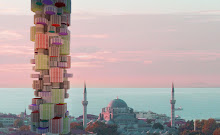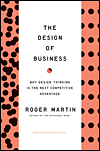David Elliot epitomizes entrepreneurship. He has founded numerous successful companies (US Assist, Direct Hit) on both sides of the Atlantic and sold them for hundreds of millions of dollars. He is also a winner of MIT/Inc. Entrepreneur Award. He has worked for the United Nations Development Programme and Asia Development Bank. Having accomplished so much at 49, David Elliot could relax, take it easy but instead he has taken his drive, vision and his profound knowledge of start-ups to Afghanistan.
I confess, up until today, I didn't know very much about David Elliot. My interest was peaked this morning when while sipping my cup of coffee, I read an article in the Financial Times about his efforts to team with Kabul businesses to improve lives in war-torn Afghanistan.
This however, is not the first time he has been to Afghanistan. He made his first trip in 1976 with his brother. They were travelling from Turkey to India in an old VW van. He was only in his late teens then. His brother Jason Elliot was fascinated with the mujaheddin and smuggled himself across the border to work as a young volunteer to help fight the Russians. This extraordinary trip forms the basis for Jason Elliot's renowned book on Afghanistan "Unexpected Light."
Ironically, when most people were fleeing after the tragedy of 9/11, it was then David Elliot decided to return to Afghanistan. At that point he had decided to spend the rest of his career trying to reduce poverty through what he knew best - private sector businesses. As the quintessential entrepreneur, he saw great opportunity and possibility in Afghanistan's barrenness. "Walk down the market and you will see masses of business going on and they've just had a car bomb 3km away. It hasn't stopped anyone from doing their shopping," Elliot is quoted in the FT.
He believes there is a fortune to be made helping the poor help themselves. (Just look what Mohammed Yunus has accomplished with Grameen Bank). With cash from United States Agency for International Development (USAID), he is backing a colorful mix of start-ups including a chain of pharmacies, a credit bureau, a payphone business run for and by women, and a boutique hotel near Band-e Amir, amidst the five deep blue lakes in the mountains. (It is one of Afghanistan's most visited locations, and yet has no real hotel). He is also developing a website that allows Afghan expatriates to send gifts to their families at home. Gifts can include cash, flour, cooking oil, or a goat. In return, the expatriate receives a digital picture of their family smiling beside their gift.
It is critical he says, that businesses join the diplomatic and military efforts in Afghanistan. Yet most companies remain wary. Undoubtedly, economic development is necessary for any successful transition to peace. I hope he succeeds.
 Band-e Amir
Band-e Amir(Image taken from Wikitravel)






























Hi Deeba,
ReplyDeleteThanks for the glowing tribute. The FT story made it sound a lot more glamorous than it really is, but it is true that Afghanistan would benefit from a more coherent and concerted push for economic development in ways that impact the the poor. The private sector, the donors, the NGO community and civil society all have a role to play in this, and the good news is that it is happening. Will it happen on a scale and in a time frame that will enable Afghanistan to turn the page and sustain the progress it has already made, nobody knows. But we must ask how can this movement be supported and strengthened by all our actions across the spectrum of engagement with the Afghan people. Best, David Elliot